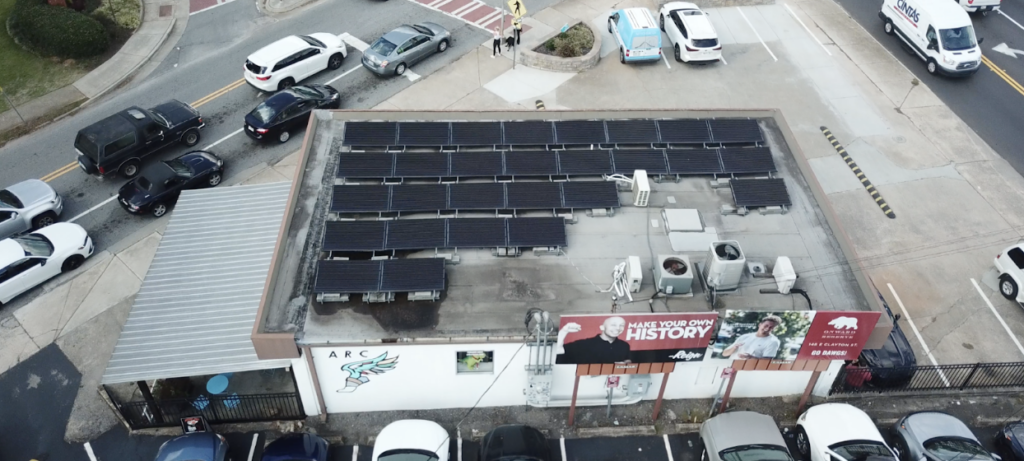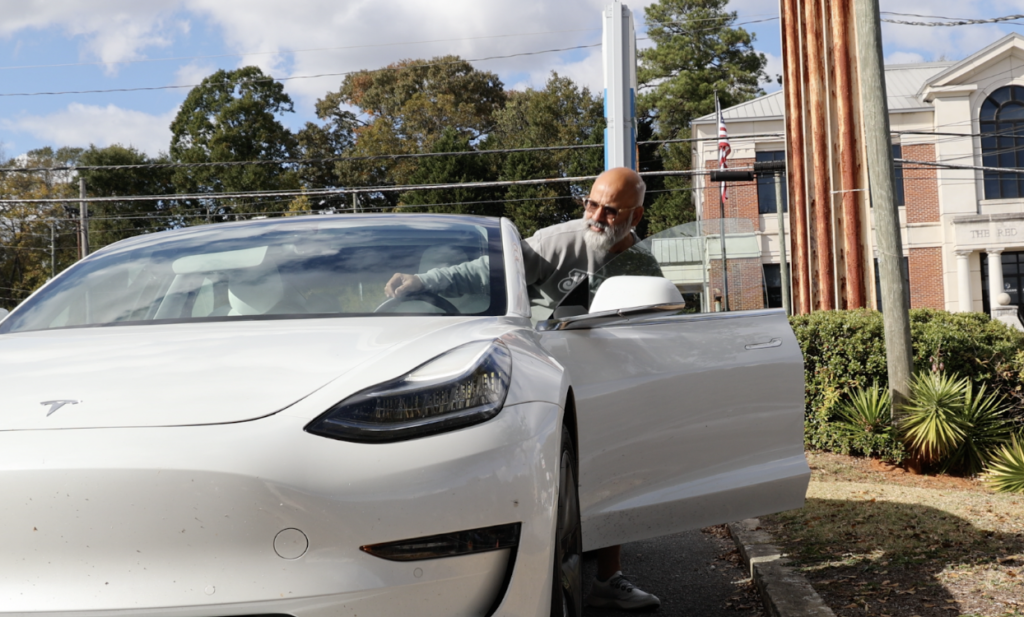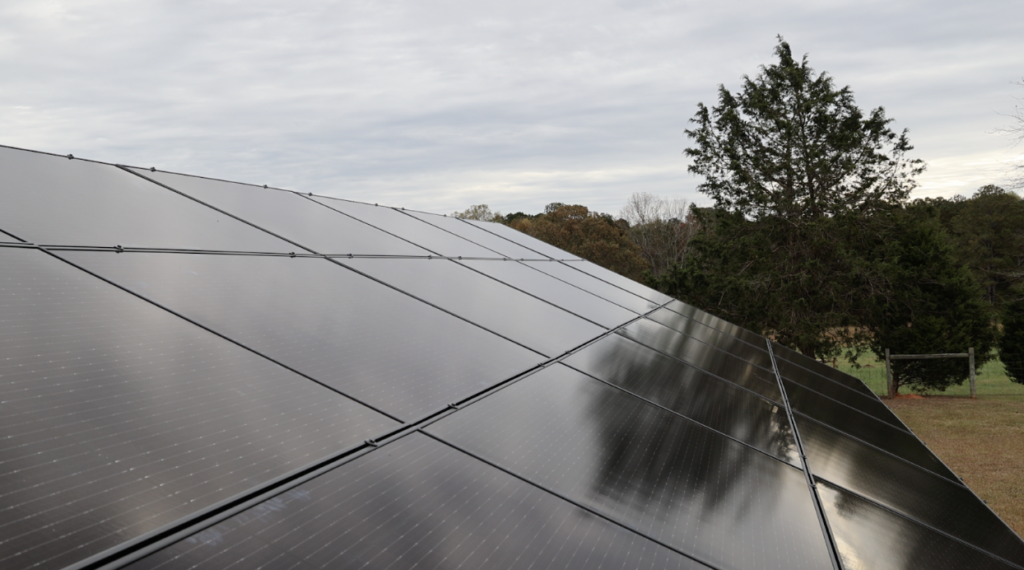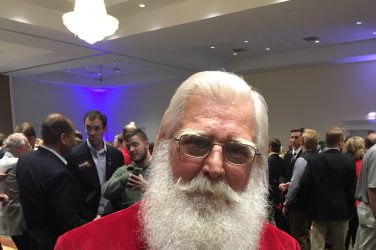Under the Georgia sun, a few businesses are harnessing solar energy to power their operations, leading a sustainable effort to reduce their carbon imprint.
Athens Running Company is one of the businesses in Athens who chose to adopt solar energy through the Solarize Athens campaign. Owner Mark Schroeoder installed their solar panels through the campaign in 2016 and claims that he is getting a significant return on his investment. He believes going through Solarize Athens saved them about 30 percent of the costs of what it would have been calling someone on their own.
“[Before installing solar panels] our air conditioning bill was like $800 every month in the summer months, and now we’ve never had a power bill over like $150. So like it paid for itself. And like I said, in less than six years,” Schroeder said.
Schroeder mentioned that solar panels may not be for everyone, including homeowners. Businesses like his are open during the day when the sun is out, allowing him to run things that require large amounts of energy during the peak solar hours.
Until battery technology improves, it would be hard to power a home fully on solar due to people running their appliances at night when they get home, said Schroeder.
Why It’s Newsworthy: Athens Running Company has been able to offset the initial cost of solar panels through saving money on monthly electricity bills. His decision to place panels on top of ARC’s roof is not only saving him money, but is also illuminating a greener future.
Non-Solar Business
Rakesh “Rocky” Gosain, owner of the convenience store Jimbo’s, on Baxter Street, has interests in adapting to new technology, but has questions for how solar energy can work in the gas station business.
“I don’t know what the petroleum guy is gonna say about solar panels. I haven’t seen any petroleum companies using solar panels yet or any gas stations using solar panels,” Gosain said.
Though he sells gasoline, Gosain was one of the first in Athens-Clarke County to start driving an electric car. It is his minimal knowledge of how solar can work for his specific type of business that keeps him from making the switch like he did with his vehicle. One concern he voiced is not knowing how the solar panels would properly power his backup generators.
“If it’s possible we would think about it, you know. I mean, it’s a new technology everybody is gonna be like in that program in next 20 years or next 30 years,” Gosain said.

The Solar-Energy Business
Montana Busch, President of Alternative Energy Southeast (AES), always had a knack for engineering. This passion, along with his hatred of the fossil fuel industry, motivated him to start his solar panel installment company in 2007.
“As a kid, I always liked to take things apart and put them back together,” Busch said. “So I kind of thought solar power would be a good field for me to get into.”
AES also benefited from the Solar Investment Tax Credit, which provides individuals and businesses 30% credit after they install panels on their property. The policy went into effect in 2006, the year before Busch started AES in 2007.
“At the time that tax credit was introduced, there was only two manufacturers in the whole world that sold solar cells,” Busch said. “And now there’s, there’s just hundreds, within even just a few years there, they just popped up all over.”

Georgia’s solar industry has them ranked 7th in the nation for solar use. According to the Solar Energy Industries Association (SEIA), the sector offered over 5,000 jobs in Georgia as of the second quarter of 2023, including 54 manufacturers and 80 developers. They also projected solar power to increase by 3,523 megawatts over the next five years.
The price of solar installation has decreased in the past decade.
“Solar in 2007 was probably like $10 a watt to install for the whole system, and now we’re around $2.50 a watt,” Busch said. “So that’s been the biggest driver of change. Of course, the cost of electricity continues to go up over time, so the more expensive what you’re avoiding or offsetting, the more value solar is to use.”
Busch founded AES to create competition for fossil fuel companies but says he still faces adversity from their stakeholders and lobbyists who spread “anti solar propaganda.”
“It’s so crazy, because they will name their think tank something that sounds favorable, like Americans for Prosperity, or different things that make it sound like it’s a really good thing,” Busch said. “But it’s just fossil fuel money being thrown into something that they’re going to go out and make marketing campaigns and try to convince people that solar’s bad.”
Americans for Prosperity (AFP), is a grassroots political advocacy group that promotes limited government and free markets, according to the Library of Congress. AFP supports the Lower Energy Costs Act (H.R.1), claiming that it would “reject green cronyism.” According to the Energy and Commerce Committee, HR1 aims to bolster America’s energy sector by increasing domestic energy production, reforming industry permitting processes and reversing the Biden administration’s “anti-energy” policies.
Busch says that the most recent misconception is the idea that solar customers make electricity more expensive for other users, known as “cost shifting.”
A report by Solar United Neighbors reviewed multiple studies and debunked the cost shifting argument, which they label a myth. While individuals who agree with the idea claim that homeowners using less electricity raises prices for other power customers, the report states that natural electrical use variability accounts for more annual reductions than rooftop solar users in most areas.
“But the only way (cost shifting) could be true is when solar has over 30% of the generation mix,” Busch said. “And in Georgia, we’re still way way under that, we’re under 5%, so more solar on the grid is not going to shift costs to anyone. It just takes money out of the utility’s pocket, and they don’t like that.”
SEIA’s data represents that 6.02% of Georgia’s electricity originated from solar as of June 2023.
Despite the challenges he faces, Busch remains hopeful for the future of solar power and other renewable energy.
“But this industry just needs so much support, and you just don’t have a choice,” Busch said. “Really, you can stand on the sidelines, like a lot of people do, and just be a victim, or you can step up and try to make a change.”
Thomas Lee, Ben McDaniel and Sarah Evans are majoring in journalism at the University of Georgia.









Show Comments (0)